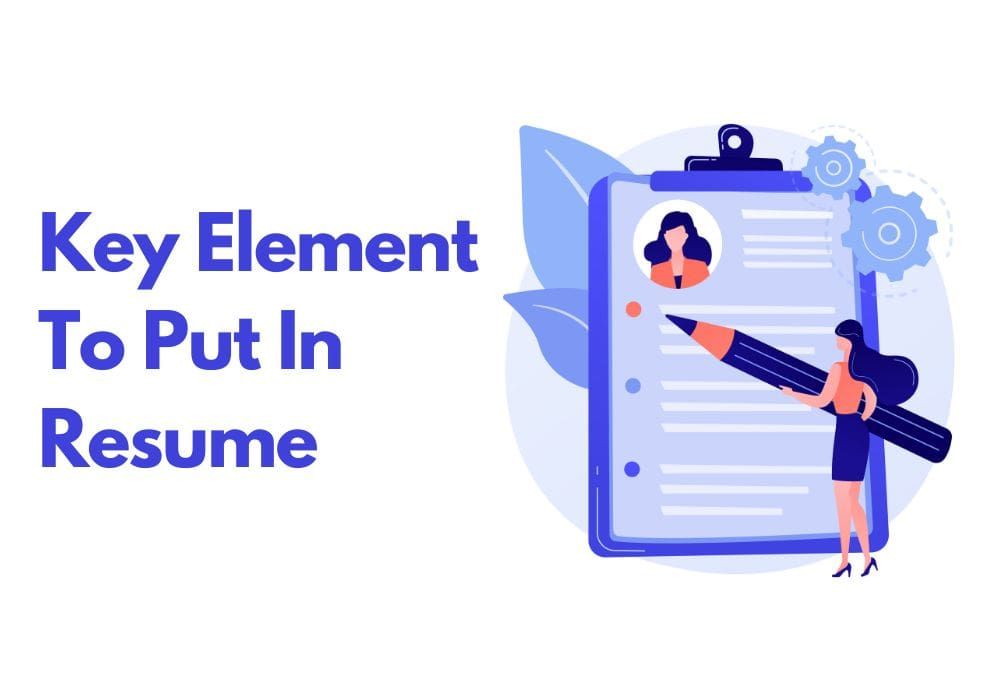
A resume with all of the appropriate and important segments provides your potential employer with an overview of your credentials and reason to consider your profile for fulfilling his job requirements.
Each part of a resume plays a significant role for making your profile stand out best for being considered for an interview. Leaving out some critical sections in your resume, you can give an impression that your profile will be shortlisted by the employers for the position he is hiring and make him realize why you are the best suitable candidate for the position you have applied for.
In other words, your resume is the first document through which you are going to communicate with your employer. Therefore, your resume should contain elements of all the 7 Cs of an effective communication which are as under:
1. Principle of Clarity: A resume should be clear so that the employer can understand what you really want to communicate. The following tips are offered for making meaning clear:
• Picking out the brief, acquainted and also effortless words and phrases.
• Picking out conversational words and phrases rather than poetic types.
• Constructing successful paragraphs and also grammatical construction.
• Staying away from techie words and phrases and also jargon’s.
2. Principle of Completeness: Your Resume must be complete. It should convey all facts required by the Employer for picking up the right candidate for the job offered.
3. Principle of Conciseness: Conciseness means wordiness, i.e, communicating what you want to convey in least possible words. Your resume should be Concise. Concise resume has following features:
• It is both time-saving as well as cost-saving.
• It underlines and highlights the main message as it avoids using excessive and needless words.
• Concise resume is more appealing and comprehensible to the recruiter.
• Concise resume is non-repetitive in nature.
4. Principle of Concreteness: Concrete resume implies being particular and clear rather than fuzzy and general. Concreteness strengthens confidence.
5. Principle of Courtesy: Courtesy in resume implies that the resume should show the sender’s expression as well as should respect the receiver. The sender of the resume should be sincerely polite, judicious, reflective and enthusiastic.
6. Principle of Correctness: Correctness in resume implies that there are no grammatical errors in the resume. If the resume is correct, it boosts up the confidence level in the mind of the recruiter and gives greater impact.
7. Consideration for Receiver: Consideration implies “stepping into the shoes of others”. Effective resume must take the employer into consideration, i.e, the employer’s view points, answer to their desired profile, background, mind-set, education level, etc. Ensure that the self-respect of the recruiter is maintained and their emotions are not at harm. Modify your words in the message to suit the recruiter’s needs while making your resume complete. Lay stress on positive words such as jovial, committed, thanks, warm, healthy, help, etc.
Apart from the above Principles the following guidelines ensure effective resume drafting depending on your Career, education as well as the position you are applying for:
-
Name & Contact Information:- The contact information should be in the top of the resume which Include your full name followed by your professional email Id, contact No., and, address. In case you are not feeling comfortable putting your full home address, you can simply list your city and state. For making it easy to see, you can highlight your Name & contact No. by making it bolder or of larger font than the rest of the resume.
-
Resume Summary/Profile:- This is the next section that will be included in your resume after the contact details. For making your profile to be effective and relevant you need to put your profile summary of your qualification, accomplishment and a relevant work experience in a profile you are applying for, which will immediately show employers that you have some relevant experience in the same field .
-
Work Experiences:- You need to primarily focus on this section as this is the first place your hiring manager looks for on your resume. If you have held any previous jobs (including internships), your experience section is where to put them. You should include the companies you have worked for, the title you held at each company and the specific duties and responsibilities you had in your position. You can also include any significant achievements or awards received in previous jobs you have held.
-
Skills:- In this section of your resume, you can list the specific skills you have as they relate to the job you are applying for. Common skills you could put in this section include computer skills, technical skills and soft skills that are specifically relevant to the position. You can use the job listing as a guide for what the most appropriate skills to include would be.
-
Education:- The education section is also a necessary part of your resume. This component of your resume outlines your educational background as well as any academic achievements or awards you have received. You should include the name of the college you attended, the degrees you completed and honours or achievements you have earned.
-
Additional Parts to be included In resume:- There are some more points that you can wish to be put in your resume to make it more complete and appropriate.
-
Awards/Achievements:- If You have some more awards & accomplishments in your career experience you can wish to put the details.
-
Language:- If you have a knowledge of speaking more than one language, you can put the details of the same in this section. Sometimes recruiters are looking for the candidate who has fluency in some language.
-
Hobbies:- Some companies are interested in understanding the candidate. So you can consider listing 2/3 things that you enjoy doing in your free time.
-
Personal Details:- You can also put some of your personal details like date of birth, marital status, Parents Name, etc to make a recruiter understand your profile better.
This is the resume format that recruiters and employers are used to seeing and prefer to read. Don’t get fancy when it comes to your resume writing. Don’t use some unusual format, like a functional resume, that hides dates of employment and the order of the jobs you’ve held.



